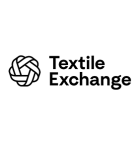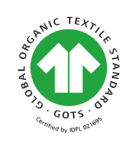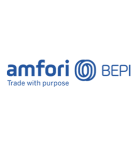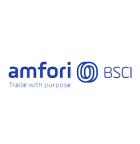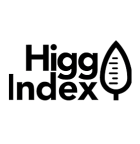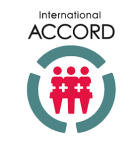INSIDE BLUE SEVEN
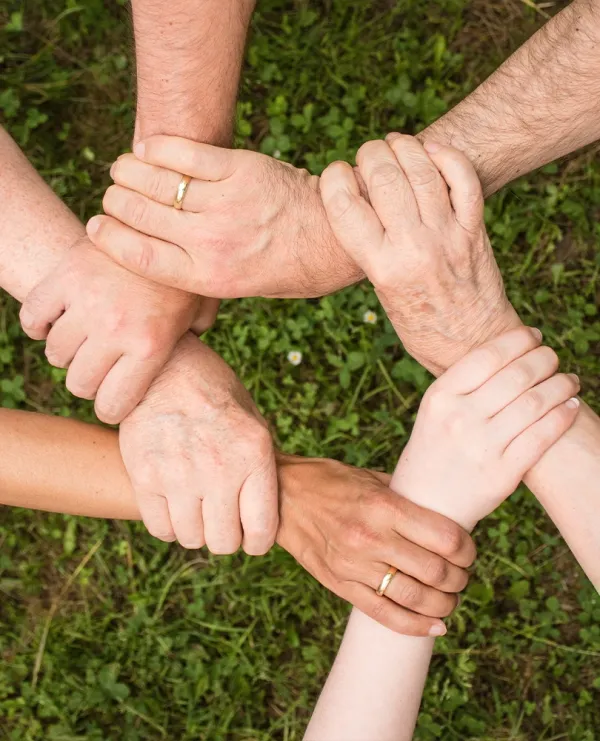
Our Commitment
We care for our people and our planet, which is why we approach fashion that couples revenue generation with ethical and environmentally aware business practices.
Blue Seven’s sustainable responsibilty is aligned with the UN Sustainable Development Goals, the OECD Guidance on Responsible Business Conduct and those set forth by industry benchmarks such as amfori, International Accord, Textile Exchange and Global Organic Textile Standard (GOTS).
Our employees, especially our Sustainability Team, lead Blue Seven towards this meaningful change. To learn more about how we take part in changing the fashion industry for the better,
Our People
- Transparent & Fair Value Chain
- Respecting International Human Rights
- Building Safety
- Employee Voice & Communication
- Philanthropic Work
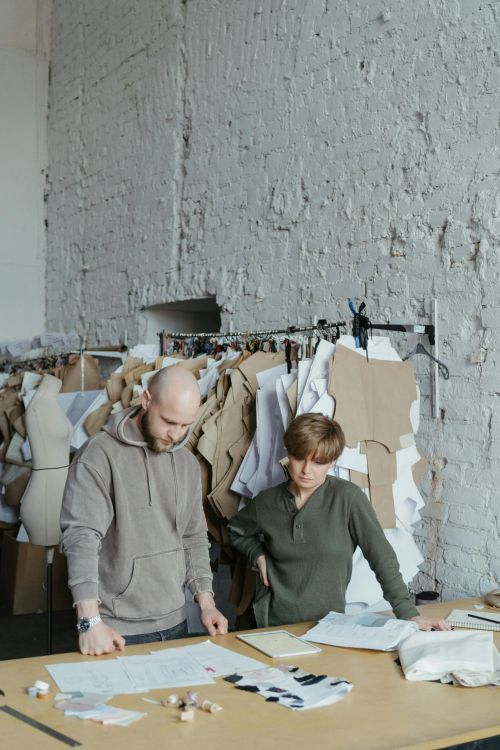
Transparent & Fair Value Chain
Blue Seven approaches business in a holistic manner. Our bold values of transparency, honesty and responsibility are a steadfast base guiding us throughout our entire value chain.
Respecting and protecting human rights is not only a moral and ethical obligation but also fundament upon which we fashion a sustainable and responsible work environment.
Sources of International Law
We ensure fair and equal working conditions in our Human Rights Policy and condemn any violations of human rights set forth in:
- International Covenant on Social and Political Rights
- International Covenant on Economic, Social and Cultural Right
- International Declaration of Human Rights
Prioritizing the people that make Blue Seven to what it is, has always been at our core. We provide a work environment that is based on the International Labor Organization (ILO) labour principles. We ensure that all human rights and social rights are held in place every step of the way.
Industry Benchmarks
As of July 2024, our brand is Global Organic Textile Standard (GOTS) certified. The mission of GOTS stipulates both environmental and social standards throughout the entire value chain. By becoming certified, we express our values in transparent and ethical business proceedings outwards.
Furthermore, we have been a member of amfori BSCI since 2010, which is an initiative that provides social benchmarks, in order to improve the fashion industry’s standards in terms of labor and human rights. Amfori BSCI created a Code of Conduct, which is at the heart of their tool, to address and mitigate labor risks and other human rights violations.
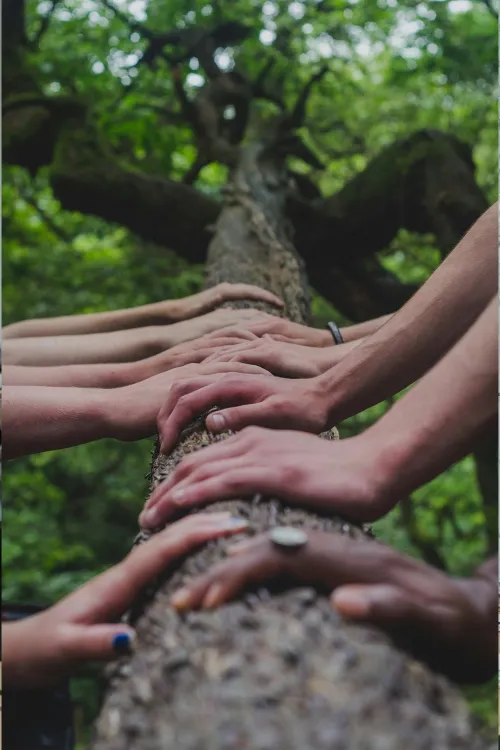
Respecting International Human Rights
Affirming the dignity and worth of the human person
Non-Labor Related
- Right to Health
- Equality in Rights (race, color, sex, language, religion or other opinion, nationality and status)
- Right to Religion and Conscience
- Right to Freedom of Expression
- Right to Privacy
- Right to Environment and Water
Labor Related
- Slavery Forced Labor
- Child Labor
- Just and Favourable Renumeration
- Right to Freedom of Association and Collective Bargaining
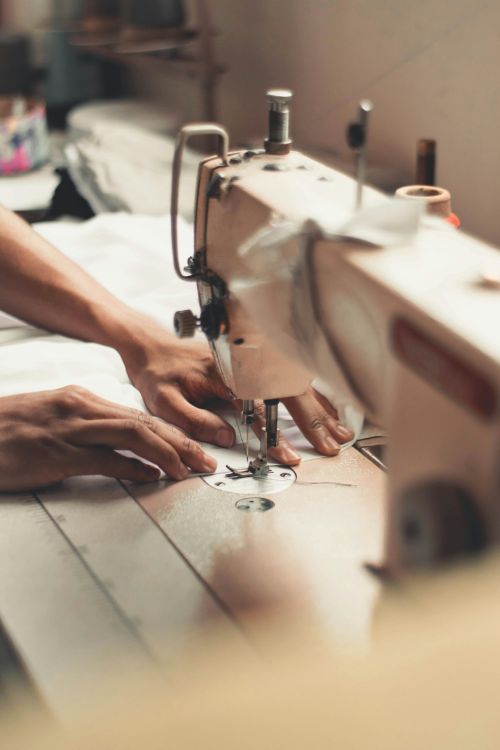
Building Safety with International Accord
At Blue Seven we recognize that physical safety and health is a cornerstone of our workers well-being. We are signatory to the International Accord on Building Safety, which ensures worker protection from fires, structural damage and other and accidents that can be prevented in the workplace with reasonable safety measures.
As signatory of both the Bangladesh and Pakistan Accord Agreement, our cooperating factories commit to inspection, remediation and health and security trainings as set forth in the International Accord. For more details on the agreements for building safety, read here.
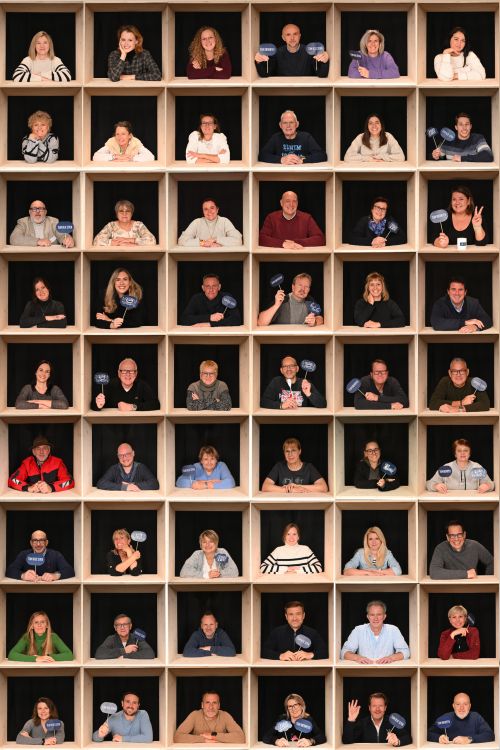
Employee Voice & Communication
At Blue Seven we recognize the importance of our teams happiness. Our motto is: Happy Employees = Happy Blue Seven.
Our CEO, Andreas Burger, maintains a welcoming open door policy, that encourages employees to speak openly with him.
Furthermore, we conduct periodic surveys for our employees, which contain general and more strategically specific questions in terms of their satisfaction from previous surveys. This methodology ensures that we are part of an upward motion in terms of employee happiness and well-being.
Content workers on our supplier level, are important to us. Besides providing for protection of their human rights, we are in close contact to the suppliers in order to conduct regular communication with them. Visits to our suppliers factories are planned and executed periodically. This allows us to gain insight about them and provide for encouragement and improvement suggestions on the regular. Lastly, we also use monitoring partners, such as amfori BSCI and self assessment tools, such as HIGG, to assess our suppliers status in terms of worker well-being.
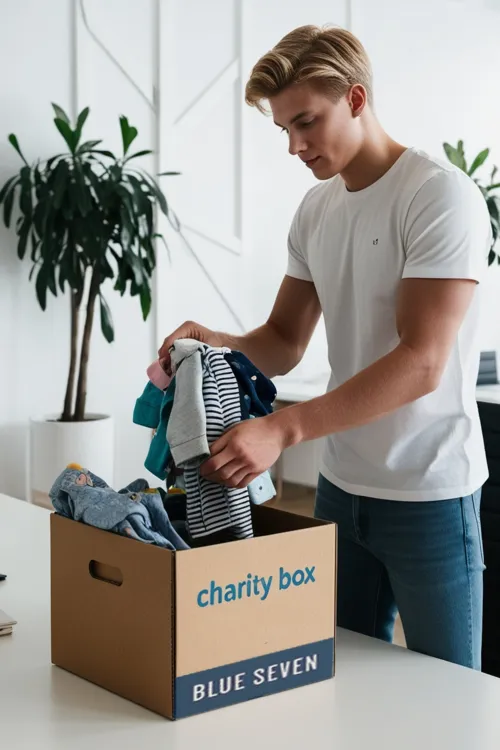
Philanthropic Work
At Blue Seven we understand philanthropic donations as an opportunity to give back to society. We carry out our charitable work with the cooperation of instititutions and initiatives that are providing charitable support globally as well as locally.
Caritas Österreich
We regularly donate clothing to Caritas Österreich, a charitable organisation of the catholic church in Austria and member of Caritas Internationalis.
PLAN International
For many years we have provided financial contributions to the Non-Profit-Organisation PLAN International, which is an organization that recognizes the international human rights of children to grow up in a healthy and safe environment and provides means of improvement and aid to children lacking that. PLAN supports children in need in 45 countries, including: Ecuador, Ghana, Philipines, Burkina Faso, Malawi and Vietnam.
Humedica Germany
Humedica is a charitable organization that was founded in 1979 in Kaufbeuren. They provide medical aid and catastrophe relief for various humanitarian crises. We have been supporting them thoroughly by sending clothing, periodically to persons in need.
Stiftung Childaid Network
We also provide clothing for the charitable organization Stiftung Childaid Network from Hessen. They provide financial assistance for child education in Naples, Bangladesh, Myanmar and South East Asia. As we produce clothing for children, we have a understanding and intuition about the beauty and radiance children bring to our planet, so by partnering with Stiftung Childaid, we feel like we made the perfect choice.
Our Planet
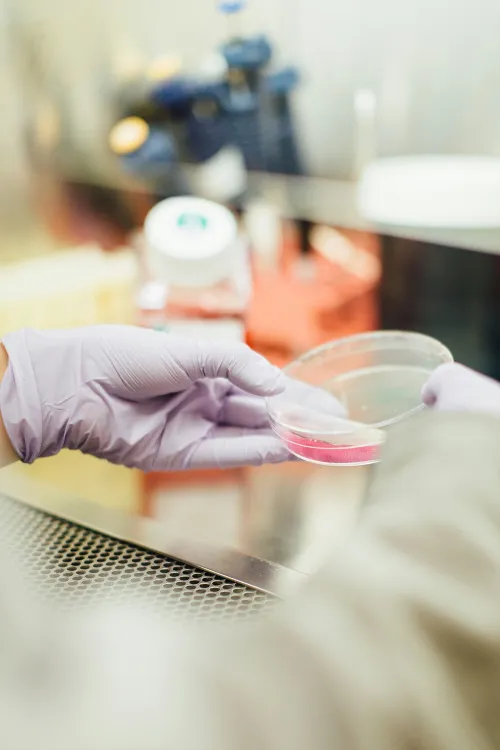
Our Chemistry
Chemicals are a key element in manufacturing clothing, as they are used in multiple processes such as washing, dying and printing.
We have a detailed Chemical Policy, which can be found here. It lists the laws and regulations, that we are in strict compliance with and shows reference to the RSL List, provided by German Fashion, which we comply with also. The chemical list can be found here. Furthermore, we ensure that all suppliers agree with our Chemical Policy, prior to engaging in business relations.
We are aware of the importance of clean chemistry and wish to maintain that throughout our production of textiles, to reduce our environmental impact.
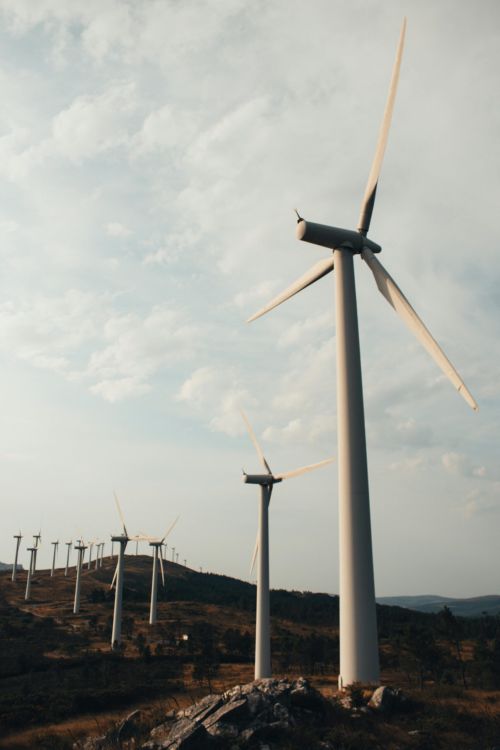
Green Office
100% Renewable Energy – Electricity & Heating
We utilize renewable energy for electricity and are proud to announce that 100% of our energy is sourced renewably, with the cooperation of WKW (Weißachtal Kraftwerke).
Furthermore, we are happy to say that 100% of our heating energy is derived from biomass, which uses zero fossil fuels, also making for a valuable renewable energy source. This is derived from local Ortswärme Oberstaufen (OWO).
Energy Saving 101
Naturally, we teach our employees how to conserve this renewable energy as best as possible. Instructing them to switch of workstations and lights, as well as reducing the heating and air conditioning and encouraging them to walk, use their bike or public transportation instead of driving a car to work, if possible. Working together, is the only way to generate a positive change for the environment.
Outlook
We plan to extend our charging facilities for employees’ cars and bikes. Additionally, we intend to implement our Solar Energy Strategy to increase our use of renewable energy.
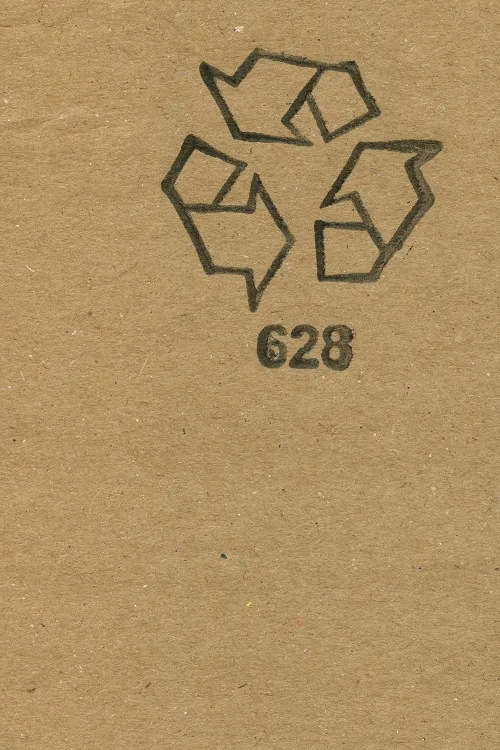
Recycled Packaging & Polybags
FSC Boxes
Committing to sustainability is important for Blue Seven, which is why we utilize FSC (Forest Stewardship Council) certified boxes. We believe that using recycled paper boxes, from certified forestry management, is a responsible way of shipping our clothing.
We would also like to note, that we re-use paper boxes from supplier shipments, for further shipments, if they are in tact and are good and safe for use. Boxes are packed, to ensure maximum use of capacity within the shipping box, to limit surplus paper use.
Polybags
Polybags are essential for shipping textiles, as they prevent the product from soiling and mildewing. We only use 100% recycled Poly bags to package our textile products. These poly bags are certified per Global Recycled Standard (GRS) and contain only recycled polytheylene and polypropylene.
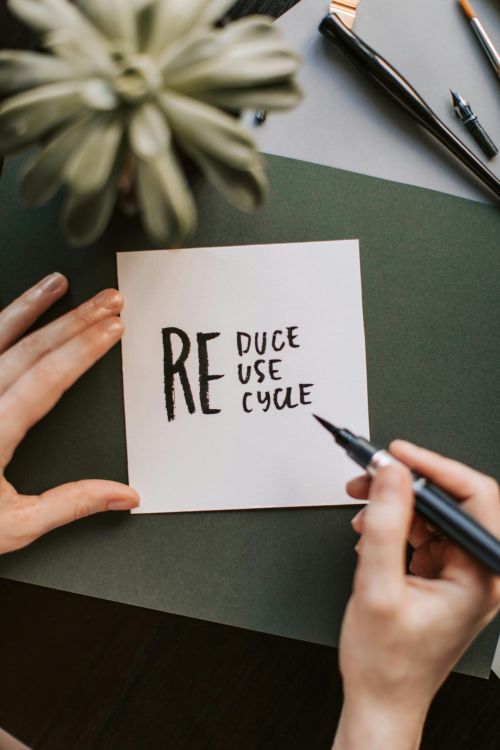
Reduce
Reuse
Recycle
Reduce
Limiting clothing purchases has a positive environmental impact. By reducing consumer consumption, we decrease the demand for valuable resources, thus limiting carbon emissions and finally waste.
Reuse
Opt for reusing clothing from your wardrobe, by altering it to fit you better. Clothes can easily be swapped and exchanged among friends or even bought second hand at retailers and flea markets.
Recycle
If you cannot reuse your moms dress or your grandmas blazer and grandpas trench coat, try recycling the items according to national regulation. Textile-to-textile recycling creates value as opposed to waste.
Furthermore, there are creative ways in which textiles can be used to create fun DIY sewing projects. Check out TikTok, Instagram and You Tube for creative DIY prompts.
OUR ALLIANCES
Textile Exchange
GOTS · Global Organic Textile Standard
We’re proud to announce that since July 2024, Blue Seven has achieved GOTS (Global Organic Textile Standard) certification, reinforcing our commitment to sustainability and ethical production. GOTS is recognized worldwide as the leading standard for organic textiles, ensuring that our products meet rigorous environmental and social criteria, from the sourcing of organic fibers to responsible manufacturing practices. This certification reflects our dedication to offering high-quality, eco-friendly products to our clients and partners, while contributing positively to the environment and the well-being of workers throughout our supply chain.
Amfori BEPI
We are a proud member of amfori BEPI, which stands for Business Enviornment Performance Intitiative. Amfori BEPI supports companies in improving their environmental performance. It provides tools for self declaration and external verification of environmental matters throughout the entire value chain. The focal areas of amfori BEPI are energy & climate, chemicals, GHG emissions, waste management, water safety and many more. Being a partner of amfori BEPI allows us to create a more structured overview over our environmental risk areas and gives us the opportunity to continually improve ourselves in terms of sustainable stewardship.
Amfori BSCI
HIGG Index
The Higg Index is a self assessment tools for the apparel and footwear industry. In particular, it gives companies a possibility to rate their sustainable practices concearning social and environmental factors. While providing clear scoring for stakeholders, it also uses a standardizes progress to report against leading benchmarks and companies.
ACCORD
We are part of the renewed International Accord that is a legally binding framework agreement with a long-established workplace health and safety program in Bangladesh and a new program in Pakistan as of January 2023.



